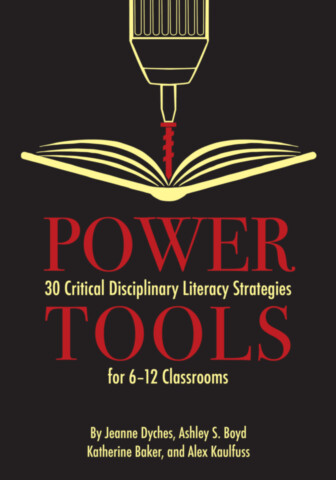Alex Kaulfuss
After earning a B.A. in English Education from North Carolina State University, Dr. Alex Kaulfuss began teaching 9th- and 12th-grade English and Forensic Debate. Over the next decade, as a classroom teacher, Kaulfuss continued to further his own education and professional growth, earning an M.S. in English Education; acquiring additional certifications in Mathematics, Computer Science, and Information Technology; becoming a National Board Certified Teacher; receiving the Jenrette Teaching Excellence Award; and earning a Ph.D. in Curriculum and Instruction. Kaulfuss became an Education Consultant for the North Carolina Department of Public Instruction and then an Instructional Technologist with North Carolina State University’s Friday Institute for Educational Innovation, working with teachers to find ways to incorporate technology in the classroom. Kaulfuss returned to public education as part of the founding faculty of a full-scale, blended-learning high school, teaching first Mathematics, then Python and Java, before returning to English at the Wake Early College of Information and Biotechnologies. Kaulfuss’s education and research interests include implementing technology in the classroom, utilizing visual texts to augment the overall reading experience, and fostering collaboration and metacognition in young adult learners.
Books by Alex Kaulfuss:

Virtually all national standards now require students and teachers to understand the particulars of disciplinary literacy. But recently emerging scholarship suggests that disciplinary literacy is, by itself, an incomplete and potentially problematic approach to secondary literacy instruction. By asking students to “think like” or even “be like” experts, students may receive implicit messaging about whose knowledge is—and isn’t—valued.
Critical disciplinary literacy (CDL) creates space for, and highlights connections between, critical literacies and disciplinary literacies. CDL acknowledges disciplines as unique communities with their own specialized (and often exclusionary) skills, norms, practices, and discourses, but deviates from conventional applications of disciplinary literacy by responding to the ways in which power systems and the analytic skills needed to understand them work differently based on the disciplines at hand. A CDL instructional approach acknowledges that applying the critical literacy skills of “reading the word and the world” to understand the power dynamics of vaccine distributions requires a different skill set and strategy approach than looking at textual representations of masculinity in Romeo and Juliet.
Written by a team of educators with over 70 combined years of classroom experience, Power Tools: 30 Critical Disciplinary Literacy Strategies for 6–12 Classrooms offers readers research-based, multidisciplinary, ready-to-implement disciplinary literacy strategies from critical literacy lenses. The book sets itself apart from other strategy textbooks by offering creative strategy implementation that calls attention to power systems. Educators can learn, for example, how they might employ read-alouds to explore the global refugee crisis, or use the exit ticket strategy to help students reflect on the relationship between race and COVID statistics/experiences.
Power Tools: 30 Critical Disciplinary Literacy Strategies for 6–12 Classrooms provides standards-aligned lessons that both challenge and extend traditional engagement practices to build a more just world. Each chapter includes:
- An overview of each strategy, situated within the research of best practices;
- Two disciplinary examples for each CDL strategy (e.g., an example of a CDL think-aloud in seventh grade math and tenth grade ELA classroom). Chapters provide resources such as examples of student work, discussion prompts, dialogue between teacher and students, and reprintables;
- Ideas for addressing resistance to CDL instruction.
Preservice and in-service teachers, as well as teacher educators and researchers, looking to do and support justice-oriented work in disciplinary spaces will find value in the book.
Power Tools is an ideal text to implement in courses such as Disciplinary Literacy, Secondary Literacy, Content Area Literacy, Methods/Strategies for Teaching Social Justice, Multicultural Education, ELA methods, Science methods, Social Studies methods, and Mathematics methods.
Library E-Books
We are signed up with aggregators who resell networkable e-book editions of our titles to academic libraries. These editions, priced at par with simultaneous hardcover editions of our titles, are not available direct from Stylus.
These aggregators offer a variety of plans to libraries, such as simultaneous access by multiple library patrons, and access to portions of titles at a fraction of list price under what is commonly referred to as a "patron-driven demand" model.
E-books are now distributed via VitalSource
VitalSource offer a more seamless way to access the ebook, and add some great new features including text-to-voice. You own your ebook for life, it is simply hosted on the vendor website, working much like Kindle and Nook. Click here to see more detailed information on this process.



